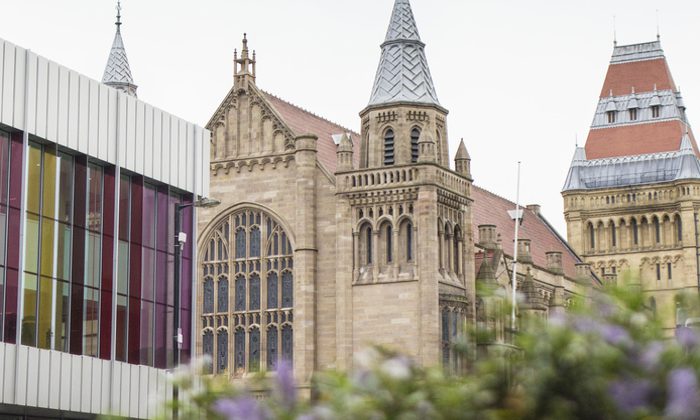Changes to travel policy to halve our emissions from aviation
03 Nov 2022
Message from Professors Nalin Thakkar (VP Social Responsibility), Colette Fagan (VP Research) and April McMahon (VP Teaching, Learning and Students)

Dear colleagues,
Our University is making changes to the Travel Policy to support our ambition to be a leader in developing sustainable research and teaching practices, as part of our Environmental Sustainability Strategy.
The changes will apply from January and more information will be communicated nearer the time.
We have set a target to halve our emissions associated with staff air travel, compared to pre-pandemic levels. This will mean a reduction from 18,500 tonnes of carbon dioxide equivalent in 2018/2019 to 9,250 tonnes.
To support this, we have made several changes to our Travel Policy, to take effect from January. Top-up funding and advice will be available to help local areas make these changes, while retaining autonomous and local decision-making.
The changes are:
- Everyone is encouraged to consider whether the meeting could be successfully carried out online rather than in-person.
- Where travel cannot be replaced by online meetings, there is a now a default expectation that UK mainland travel will be by train. Any exceptions to this will be approved locally in the same way as business class bookings are now.
- For European travel colleagues are expected to routinely consider using rail and to plan their projects and activities to accommodate this where possible.
- A ‘top-up fund’ to cover additional costs between air and rail travel has been agreed for two years, to be used when other local funds are not available. More details on how to access this fund will be communicated in January.
- The way travel is approved will not be changing.
Supporting positive change
We completely understand that while colleagues may support our aim to reduce carbon emissions, they may need more information and advice on how to reduce air travel. We will be providing new guidance and ongoing communications.
We will continue to work with Key Travel to encourage lower-carbon travel and make booking rail travel as streamlined as possible, particularly in light of the current difficulties with train cancellations in the UK.
Some Faculties, Schools and Departments have already adopted plans and policies to reduce their emissions from air travel. The changes announced here raise our minimum expectations across our University but we encourage colleagues to go further and faster where they can and to share their learning and approach.
Academic Lead for Carbon, Professor Carly McLachlan, and the Environmental Sustainability team will work with School, Faculty and central teams to support development of local plans for reducing emissions and to share good practice.
All Faculties, Schools and Directorates will be provided with data on their travel emissions and we will report on progress every six months.
The impact of these changes will be reviewed after a year.
We know that there is no one solution that will be suitable for all journeys, and we will meet the needs of all colleagues. That’s why we are going to work with you to reduce administrative burden and ensure that the objectives of your work can be met.
We must pull every possible lever to reduce the carbon emissions associated with our activity, including staff air travel. The new Travel Policy is not taking place in isolation; it is part of our Environmental Sustainability Strategy which includes plans to reduce our carbon footprint through our energy use on campus, procurement and many other aspects of what we do. This is central to our mission as a university and something that our funders, students, colleagues and society at large expect us to be doing.
Thank you for your support in this important initiative.
Nalin, Colette and April
